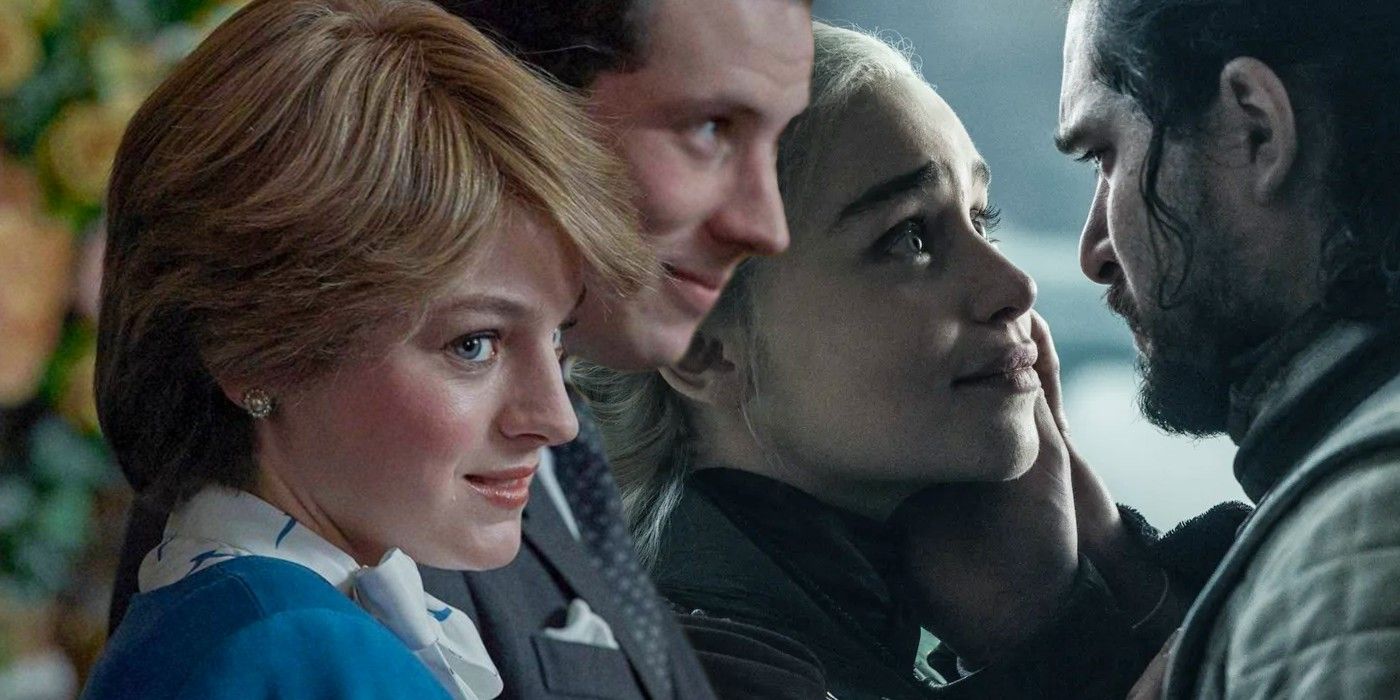
Netflix's The Crown has achieved something with season 4 that the final season of Game Of Thrones - that other regally obsessed epic drama - miserably failed at. In both cases, the original plans for later seasons were changed when the show-makers came to a decision on when to bring them to an end and both saw a quickening of pace that fundamentally changed their make-up. And only The Crown manages to deftly navigate the associated issues of story-telling and pacing because of the approach to story.
Season 4 of The Crown focuses most heavily on the twin narrative pillars of Margaret Thatcher's tenure as Prime Minister of Britain and the associated economic and social fallout and also the marriage of Princes Charles and Diana Spencer and the challenges to the Crown's traditions and Charles' own position. Intriguingly, the show refuses to draw battle-lines, allowing for interpretation both on Thatcher - who is widely painted as a hellish figure even by some Conservatives - and on who was to blame for the Diana/Charles nightmare to come.
The Crown doesn't pause to reflect on any of its major season 4 events. Opening with the assassination of Lord Mountbatten by the IRA and ending with Charles attempting to divorce Diana - to the fury of Queen Elizabeth II - there is an accelerated but well-structured arc that takes in both wider themes (like traditionalism and progressive monarchy) and very specific events setting up season 5's tragic events. And what could have been either too heavily reliant on exposition or too quick to explore events and move on - accusations levelled at the final season of Game Of Thrones - ends up being a triumph of astute story-telling, precisely because of what is left out. Considering how much HBO's flagship drama struggled with the weight of expectations attached to its own looming ending, that The Crown managed to avoid the same pitfalls should be lauded.

Even though major events like Mountbatten's assassination are quickly dealt with and the wedding of Charles and Diana is entirely skipped, The Crown's success comes down to knowing what to pick from history to tell its story. Both the Netflix show and Game Of Thrones had sprawling historical narratives to draw from and a lot of events to cherry-pick from, but Game Of Thrones fell down largely because the final season has no source material to adapt from. Without that focus, the final season lost its way narratively in comparative terms, rushing through and drawing out the wrong parts to create an overall pacing problem that disoriented as much as it disappointed. It did arrive at major events and did tell them well, despite what some more cynical critics of it may say, but the discipline behind the story-telling was the most obviously missing element.
In contrast, The Crown season 4 has the restraint to miss out major events where they don't directly impact the narrative, including skipping the wedding event that kicked off the season's primary storyline. That is a brave and bold move, and so to is jumping ahead through years of stagnation and destruction both in Britain and in Charles and Diana's marriage. Endlessly picking over those narrative bones would have been self-indulgent and repetitive - no matter what the opportunity for great dialog might have been - and instead, the season concentrates on patterns and cluster events to tell a wider story. That means the break-neck speed with which the show traverses 1979-1990 never feels like anything is missing. Where Game Of Thrones season 8 felt like it was working towards a tight, restrictive deadline to get everything sorted out, The Crown season 4 embraced the model and improved in quality because of it.
from ScreenRant - Feed https://ift.tt/35IIDgg


0 Comments